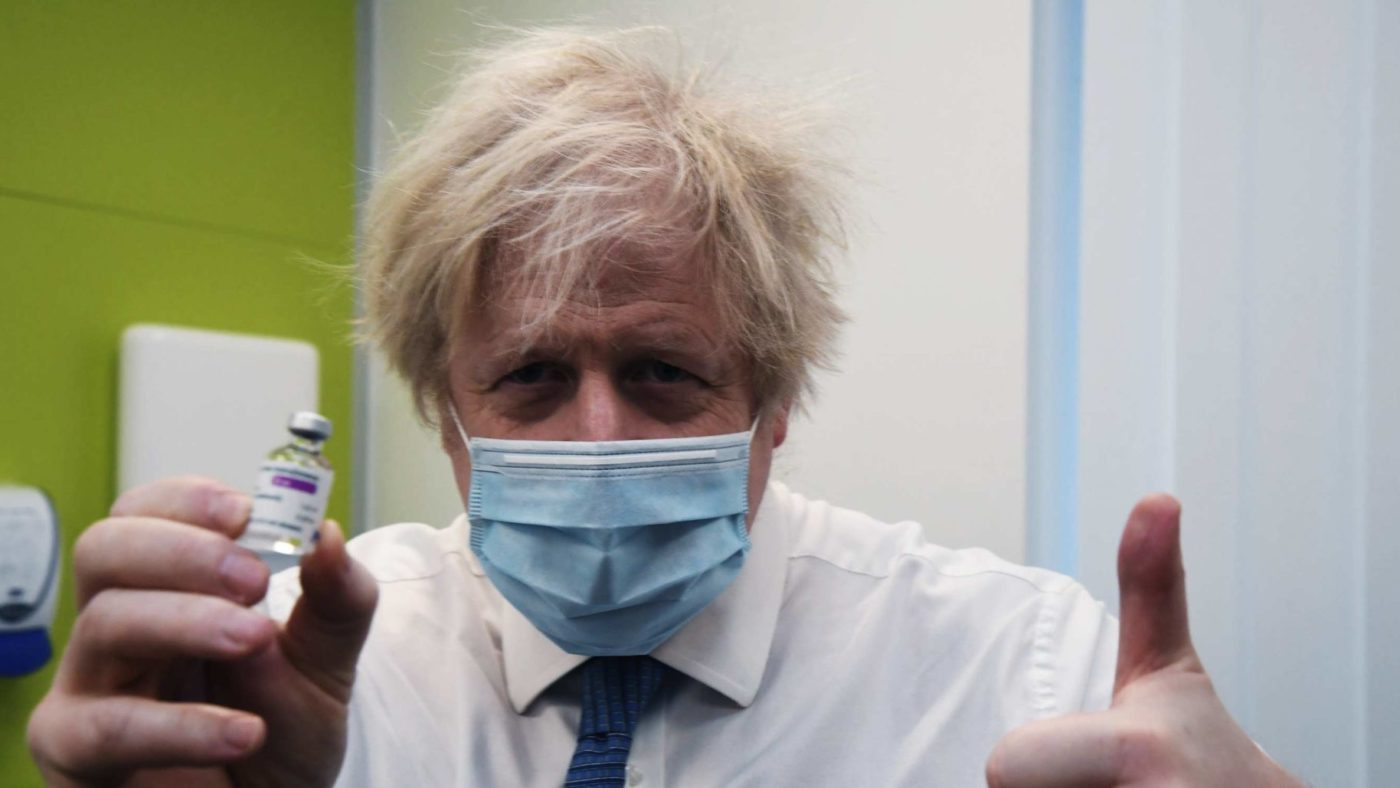Making pessimistic predictions is very much a one-way street. It’s easy to attract the attention of listeners who nod with concern, impressed at your wisdom and sophistication. If vindicated you can remind everyone how right you were, and if things turn out alright, no one will be all that bothered.
By contrast, the best an optimist can hope for is a certain amused indulgence, and a sunny disposition can easily be taken for a lack of seriousness. Indeed, the tendency towards pessimism is so deeply ingrained that many people have a misleadingly dour view not just of the future, but of the state of the world today.
Perhaps a bit of public indulgence explains how Boris Johnson has managed to succeed politically despite his incurable optimism. Boris is an entertainer, a bit of a character. Some exuberance and exaggeration are to be expected and thus to be forgiven.
There was certainly plenty of his trademark positivity in a bold announcement the Prime Minister made on 4 January. The main headline was the grim news of another strict and prolonged lockdown. But there was a Johnsonian flourish to sugar the pill:
“I can share with you tonight the NHS’s realistic expectations for the vaccination programme in the coming weeks. By the middle of February, if things go well and with a fair wind in our sails, we expect to have offered the first vaccine dose to everyone in the four top priority groups identified by the Joint Committee on Vaccination and Immunisation. That means vaccinating all residents in a care home for older adults and their carers, everyone over the age of 70, all frontline health and social care workers, and everyone who is clinically extremely vulnerable.”
Initially, it was estimated that that target would mean 13 million or 14 million arms being jabbed. “Has Britain got ANY chance of vaccinating 13m by mid-February?” screamed a Daily Mail headline. The report added that “top epidemiologist Professor Gabriel Scally, from the University of Bristol” was “doubtful the Government will be able to live up to its vaccine promises”.
The Guardian told its readers that delays were “narrowing the chances of hitting the goal of protecting more than 13 million vulnerable people by 15 February”. Downbeat comments were offered from the British Medical Association and the Royal College of General Practitioners.
It turned out the target was actually even more ambitious, with the Government aiming to give 15 million people a first dose by 15 February.
It wasn’t just the press and medical groups being pessimistic. On Good Morning Britain, Sir Keir Starmer lamented the Government’s “continual over-promising and under-delivering”. In case we still hadn’t got the message, the Labour leader told Sky News: “On their past record I have doubts.”
Often politicians would highlight a particular region falling behind. On 1 January, for instance, Sadiq Khan announced he was “hugely concerned” about slow progress in London. He was quite clear then that the Government was responsible, but a bit more reticent about congratulating that same government when London did end up hitting its vaccine target. Perhaps the Mayor will say it was all thanks to him issuing the press release.
When Nadhim Zahawi, the Vaccines Minister faced similar queries. Toby Perkins, the Labour MP for Chesterfield, offered a typical example on 11 January: “It is clear from recent conversations with Derby and Derbyshire clinical commissioning group that we are not on target to have all vulnerable groups done by 15 February.” His colleague Rebecca Long Bailey chimed in: “In Salford, we receive little or no notice that a delivery of the vaccine from the Government is due. Some batches have not turned up at all.”
Even some of Johnson’s colleagues were reported to be in retreat. The Health Secretary Matt Hancock called the 15 million target the “best-case scenario.” But the PM was not for wriggling: “We are on track to deliver our pledge,” he told the House of Commons on 20 January.
As the days went by the confidence grew. The media narrative changed, with the target going from far-fetched, to possible, to likely, to certain.
Setting the goal was a necessary part of achieving it. There had been complacency and bureaucratic inertia in the early stages of the rollout. It became a political imperative to overcome that, rather than passively accept it as inevitable. Giving a specific measure of that ambition and being held accountable for it galvanised the operation.
The pessimists were confounded. Just as they had been saying it would take years to develop a working vaccine. Or that we would be left behind by opting out of the European Union’s scheme. I’m sure they won’t skip a beat before further gloom-mongering though.
Politicians have long been denounced for breaking their promises. Often the accusation is valid. But we should also beware of letting the nattering nabobs of negativism go unchallenged. Otherwise the danger is that our leaders retreat into waffle and banalities, finding it prudent to give up on promising to achieve anything tangible at all.
Click here to subscribe to our daily briefing – the best pieces from CapX and across the web.
CapX depends on the generosity of its readers. If you value what we do, please consider making a donation.


